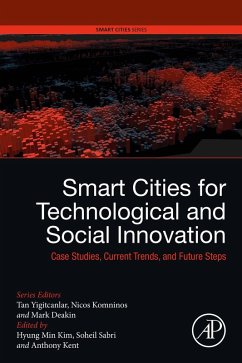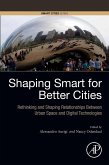Smart Cities for Technological and Social Innovation establishes a key theoretical framework to understand the implementation and development of smart cities as innovation drivers, in terms of lasting impacts on productivity, livability and sustainability of specific initiatives. This framework is based on empirical analysis of 12 case studies, including pioneer projects from Europe, Asia, the Middle East, and more. It explores how successful smart cities initiatives nurture both technological and social innovation using a combination of regulatory governance and private agency. Typologies of smart city-making approaches are explored in depth. Integrative analysis identifies key success factors in establishing innovation relating to the effectiveness of social systems, institutional thickness, governance, the role of human capital, and streamlining funding of urban development projects.
- Cases from a range of geographies, scales, social and economic contexts
- Explores how smart cities can promote technological and social innovation in terms of direct impacts on livability, productivity and sustainability
- Establishes an integrative framework based on empirical evidence to develop more innovative smart city initiatives
- Investigates the role of governments in coordinating, fostering and guiding innovations resulting from smart city developments
- Interrogates the policies and governance structures which have been effective in supporting the development and deployment of smart cities
Dieser Download kann aus rechtlichen Gründen nur mit Rechnungsadresse in A, B, BG, CY, CZ, D, DK, EW, E, FIN, F, GR, HR, H, IRL, I, LT, L, LR, M, NL, PL, P, R, S, SLO, SK ausgeliefert werden.









